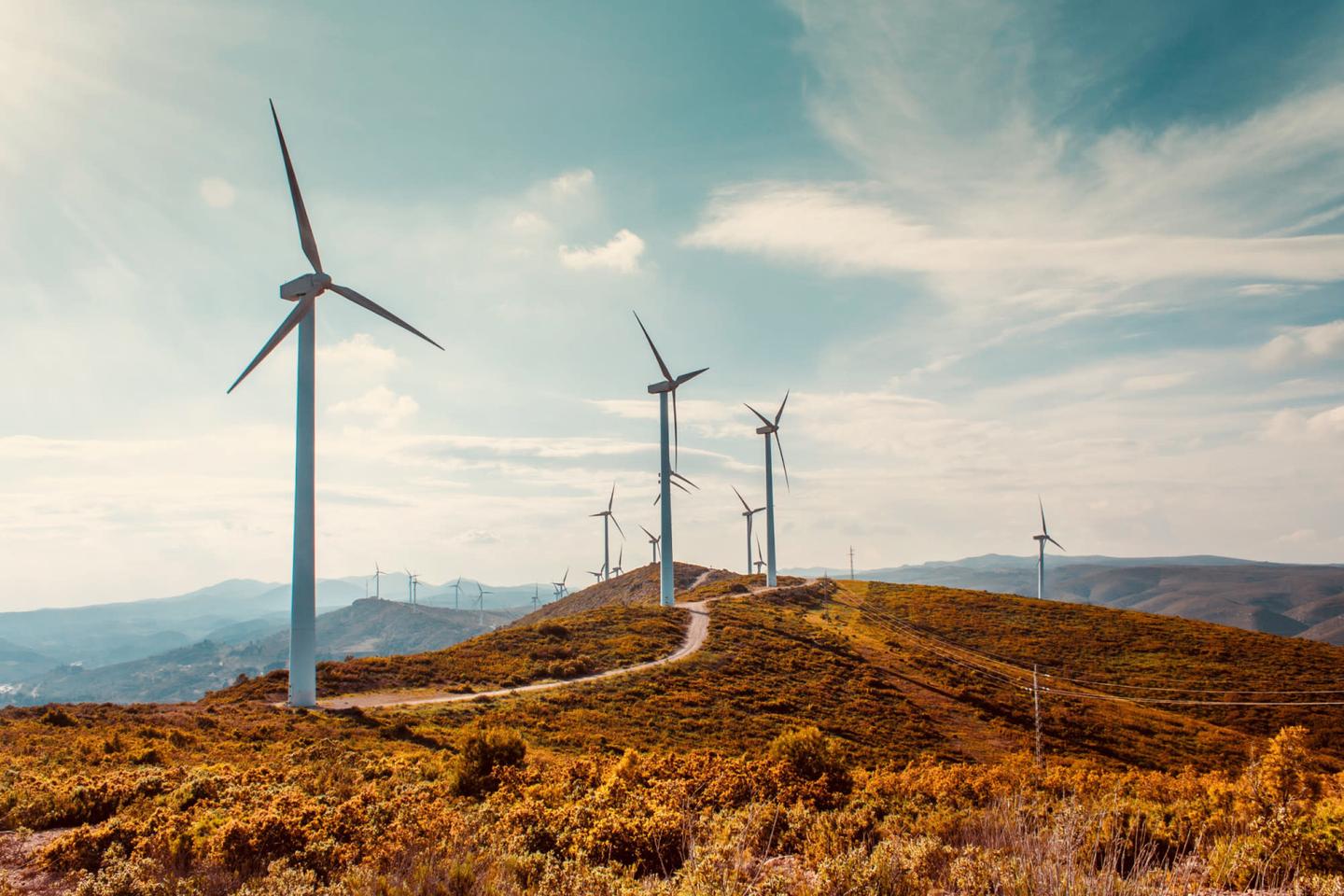Shaping a smarter grid: Ramón Sánchez-Lucas on Europe’s energy transition
Europe’s energy landscape is being reshaped at speed. The shift to distributed renewables, combined with electrification of transport and heating, is putting new strains on ageing infrastructure. At the same time, advances in digitalisation and smart grid technologies are opening the door to a more adaptive, resilient system that can anticipate risks, manage demand, and support consumers in new ways.

As part of Futurice’s Digital Energy 40, we spoke with Ramón Sánchez-Lucas, Global Product Manager at ABB, about the pressures driving change, the company’s response through both physical and digital innovation, and why collaboration across sectors is vital to ensure a stable and sustainable transition.
What’s your view on the European energy market right now?
The European energy market is experiencing several significant trends. One major trend is integrating renewables into the existing energy ecosystem. Installing power distribution lines underground to help minimize weather impacts on electrification stability is a focus, particularly in urban areas. There is also an ongoing decentralisation of generation points, with more distributed energy sources such as wind and solar replacing centralised power plants. This shift necessitates a reinforcement of the power grid to handle increased power generation points and higher electricity consumption.
How is ABB responding to these trends?
ABB is actively involved in shaping the energy world, collaborating with key stakeholders such as national power utilities, cooperative utilities, independent energy projects and electrical component distributors. My division, ABB Installation Products, focuses on creating and improving cable connections for switchgear, transformers and substations to help ensure these critical components operate efficiently and safely. Beyond merely providing hardware, ABB is increasingly integrating advanced digital solutions to support utilities in remote monitoring, predictive maintenance and overall operational efficiency. We are leveraging digitalization to help optimize the power grid, enhance reliability and empower utilities to make data-driven decisions. This holistic approach can improve system performance and also contributes to a more sustainable and resilient energy infrastructure, ultimately benefiting all end users and stakeholders involved in the energy transition.
What more can the industry as a whole do to future-proof the energy ecosystem?
To future-proof the energy ecosystem, it is important for the industry to invest in renewable energy sources and enhance energy efficiency through advanced technologies. Adopting smart grid solutions will improve energy distribution, while promoting electrification of transportation and heating can significantly reduce emissions. Supporting research and innovation is essential for developing new technologies and implementing circular economy practices to minimize waste. Engaging in policy advocacy can drive supportive regulations and fostering collaboration across sectors will lead to integrated solutions that enhance resilience and sustainability.
What support or action do you want to see from the government or the EU?
Continued support for uprgrading and investment in renewable energy projects remains essential to the European Energy Transition roadmap. Development of infrastructure, including electric vehicle charging stations and smart grids, is crucial for clean energy adoption. Clear regulatory frameworks that are consistently applied across countries in Europe can encourage innovation and investment in clean technologies. Additionally, funding for research and development in energy technologies is essential for driving innovation. Promoting public-private partnerships can lead to effective solutions in addressing energy challenges. Setting sustainability targets such as those outlined in the European Green Deal can help focus resources more efficiently and ensure a collective commitment to a greener future.
Who are your ‘ones to watch’ in the European/Nordic/German/UK energy market?
The industry is increasingly moving toward real-time monitoring and predictive maintenance, both of which are essential for the future of energy infrastructure. In terms of transmission and distribution operators, there are key providers in Italy, Germany, Spain and Latin America to watch due to their significant investments in power grid infrastructure, as well as an emerging company in Denmark, which specializes in digital monitoring of transformers. When it comes to manufacturers and innovators, ABB is at the forefront of innovation, with a history of pioneering solutions and collaborating with partners to develop new takes on existing products.
What are your personal motivations and goals for the energy transition?
I have always been passionate about working in the energy sector, which is why I spent a semester at the University of Alaska Fairbanks to deepen my understanding of this vital field. Since my first role after graduation, I have been driven by the desire to contribute to safe and reliable energy for everyone, and I have dedicated my entire career to this mission. As I look to the future, I am increasingly motivated by the need for sustainability and our responsibility to ensure future generations have access to clean and renewable energy sources. I believe we have to do this across the energy ecosystem, focusing on innovative solutions and collaboration will enable us to create an environment that provides more power and reduced emissions around the world.
How can the industry better engage end users in the energy transition?
The industry can better engage end users in the energy transition by prioritizing education and awareness initiatives that inform consumers about the benefits of renewable energy and energy efficiency. Providing accessible information and resources can empower users to make informed decisions about their energy consumption. Additionally, developing user-friendly technologies and platforms that enable consumers to monitor and manage their energy usage can enhance engagement. Incentivizing participation in energy-saving programs and community initiatives can also foster a sense of ownership and responsibility among end users. Finally, actively soliciting feedback from consumers can help tailor solutions to their needs, assuring the energy transition is inclusive and responsive to the preferences of all stakeholders.
The combination of stronger and smarter physical infrastructure with advanced digital intelligence is becoming the new baseline for Europe’s power systems and the foundation for a sustainable energy future. Transitioning to clean energy requires systems that can adapt to constant change, respond dynamically to volatility, and unlock flexibility at scale. Deepening collaboration across the sector, forming strategic partnerships and integrating technologies will create solutions that accelerate innovation across the energy ecosystem.
The Digital Energy 40 report brings together the companies pioneering the energy shift, showing how innovation in design, data, and collaboration is creating the foundations of a cleaner, more connected energy future. Download the full report to explore the leaders shaping what comes next.
If you’d like to explore how digital intelligence and smarter infrastructure can come together to advance the energy transition, feel free to connect with us.
 David MitchellChief Growth Officer
David MitchellChief Growth Officer





